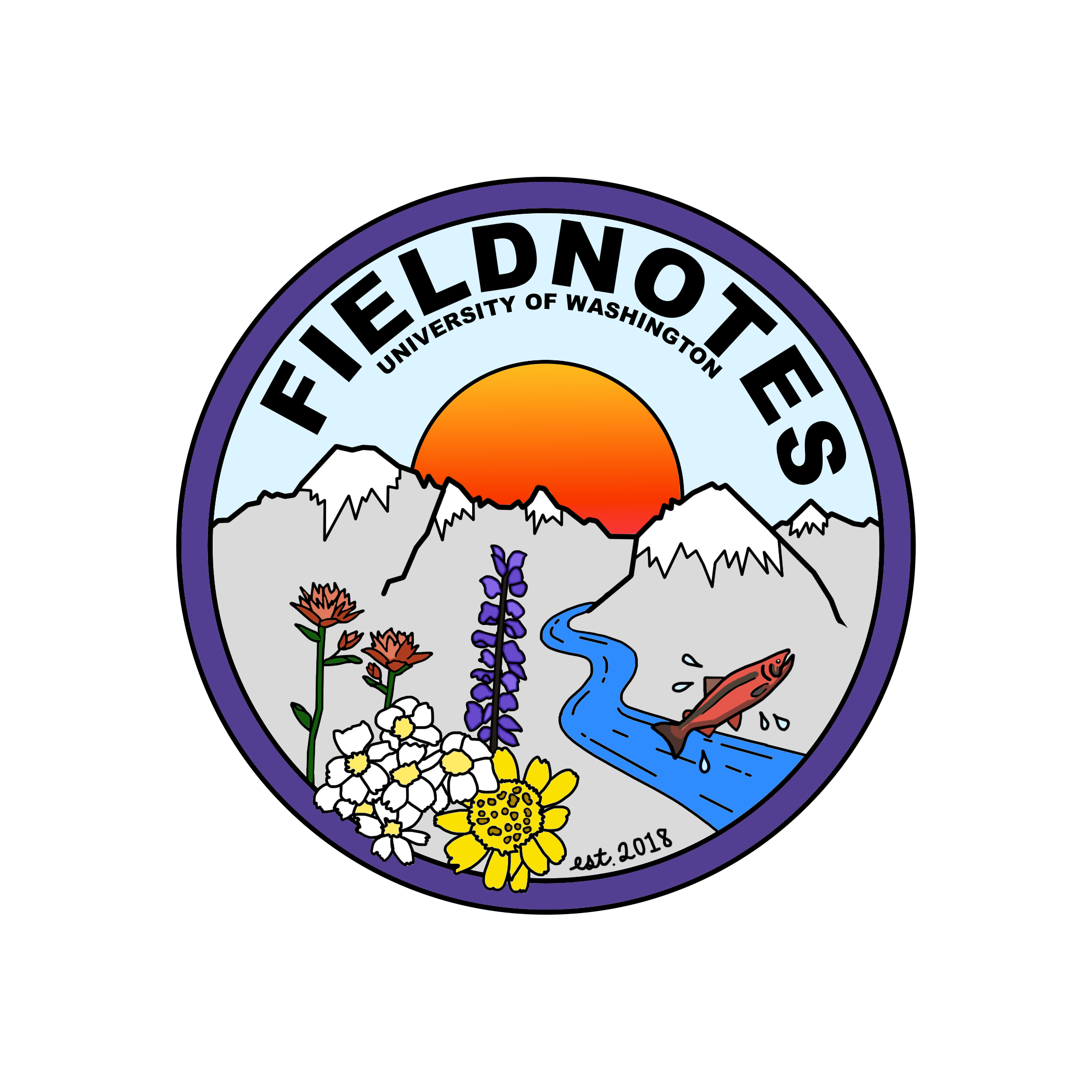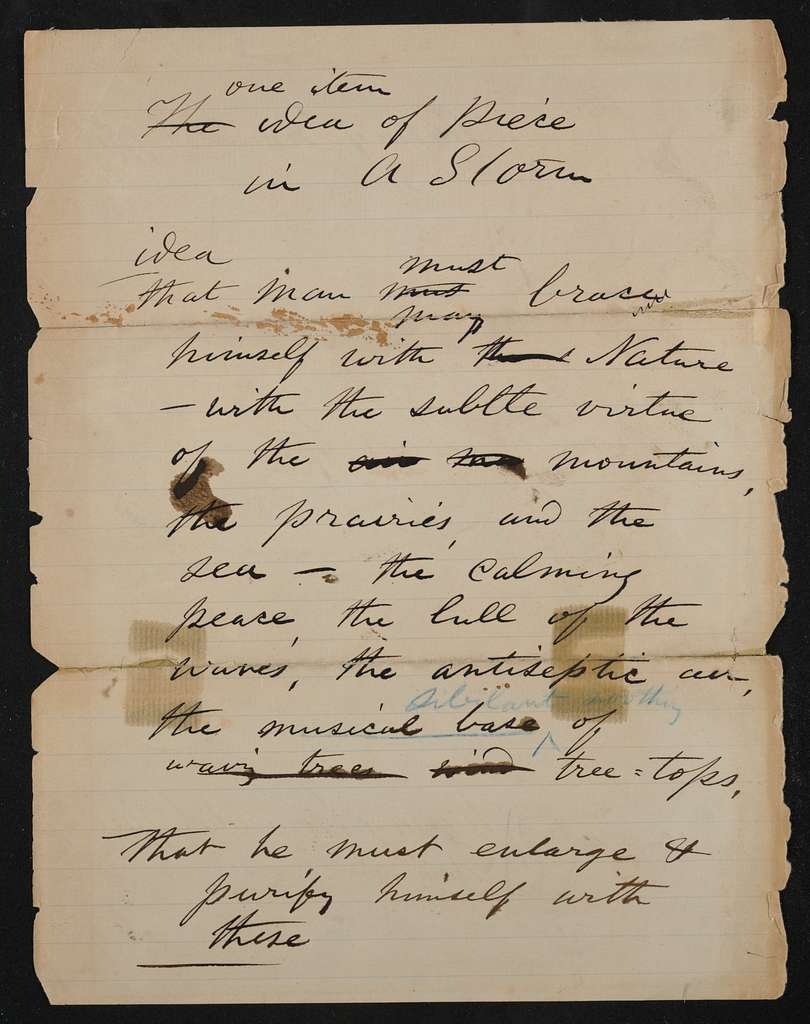Poetry in Notion
By Chelsea Whiting, Environmental Studies ‘25
In the vast landscape of science, where data-driven passion reigns supreme, the pursuit of meaning and purpose often takes a backseat. Yet, delving into the world of poetry can offer a profound perspective that enriches our understanding of science and its significance in our lives.
A fragment of prose, "Idea of Piece [Peace] in a Storm," by Walt Whitman.
Walt Whitman, an iconic ecopoet and philosopher of the 19th century, eloquently captured the interconnectedness of nature and humanity in his works. His poetry celebrated the intricate beauty of the natural world, emphasizing the deep connections between living organisms and their environment. Similarly, science seeks to unravel these mysteries, making Whitman's verses a fitting companion to scientific exploration. Existentialism, a philosophical movement centered on questions of existence and purpose, also finds resonance in the blend of science and poetry. Scientists often grapple with existential queries about the meaning of their research and its impact on the world. Poetry provides a creative outlet to delve into these themes, offering solace and introspection amidst the rigorous pursuit of scientific knowledge. Amongst the pressing challenges of conservation, where the future appears fraught with uncertainties, poetry emerges as what can be a potent de-stressor. It provides moments of respite and clarity amid the complexities and anxieties of conservation efforts.
Through poetry, scientists can channel their emotions and thoughts about conservation, infusing their work with a sense of purpose and urgency. Poetry evokes empathy for the natural world, motivating scientists to redouble their conservation efforts and inspire others to join the cause. It bridges the gap between the analytical and the emotional, weaving a tapestry of understanding that encompasses both the scientific and humanistic aspects of our existence. In embracing the words of Whitman and the spirit of existential inquiry, we integrate poetry into the fabric of science, not merely for aesthetic appreciation but for deeper meaning and purpose. It serves as a beacon of hope and inspiration in our collective journey towards a sustainable and harmonious future. So whether we read it, write it, or simply think poetically about our surrounding world, may we find kinship in poetry as a muse, a mentor, and a beautiful notion.
“The earth is rude, silent, incomprehensible at first; Be not discouraged - keep on - there are divine things, well envelop’d; I swear to you there are divine things more beautiful than words can tell. ”
Water color “Road Through the Forest” by Edvard Weie (1930-1932).
To me, this painting depicts the beauty, chaos and one-ness of art and nature.


